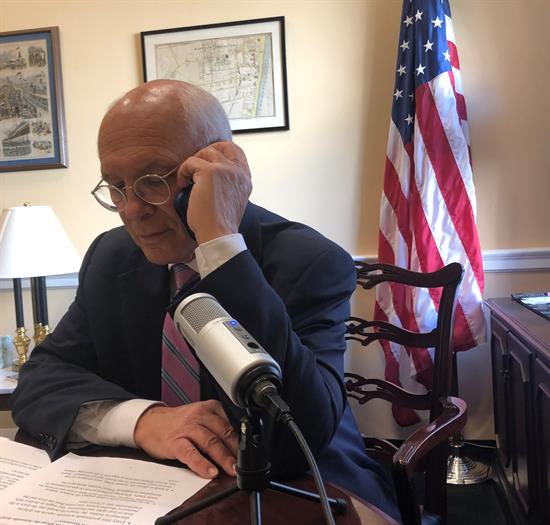- Home
- About
-
Constituent Services
- Academy Nominations
- Community Project Funding
- Congressional Art Competition
- Congressional App Challenge
- Congressional Commendation
- Event Invitation
- Grants
- Help with a Federal Agency
- Internships
- IRA Clean Energy Consumer Benefits
- Know Your Rights: Immigration
- Request a Meeting
- Request Surplus Books
- Presidential Greeting
- Visit Washington D.C.
- Issues & Legislation
- News
- 20th District
- Contact

Press Releases
Tonko Cites Capital Region Ransomware Attacks in Push to Improve U.S. Cybersecurity at Congressional HearingCongressman presses experts on actions being taken to address and deter ransomware attacks, protect U.S. businesses, governments and critical infrastructure
Washington,
July 20, 2021
WASHINGTON—Congressman Paul D. Tonko highlighted Capital Region services and organizations that have already been impacted by ransomware attacks at an Energy and Commerce Subcommittee on Oversight and Investigations hearing today. During his questioning of the hearing, he pressed the witness panel—made up of experts in technology and cybersecurity—for recommendations on how businesses and governments government can better protect vital services and vulnerable industries from the growing threat of ransomware. Rep. Tonko’s opening statement and questions as prepared for delivery: Thank you M. Chair. The government has an important role in ensuring the nation’s cybersecurity, especially related to critical infrastructure. I’m sorry to say that high profile government entities have also been victims of ransomware attacks themselves. In my district alone, the Albany airport, local 9-1-1 systems, police departments, and the Albany city government have been among those attacked. So, with many government agencies involved – both as targets and as protective actors – I would like to try to get clarity from our witnesses today on how the government can be better positioned to address this threat and help respond.
Ms. Walden, you spent nearly a decade working on cybersecurity and other national security issues at the Department of Homeland Security.
While it may sound reasonable to have one agency in charge, one concern is that each industry or sector has very specific circumstances and needs. One agency cannot be expected to understand all the complications of a ransomware attack against a power plant versus a hospital, for example. That is why we have “sector-specific agencies” to coordinate cyber information sharing with their industry and act as industry partners. Over the years, however, there has been some challenges about how such agencies coordinate with DHS.
### |
